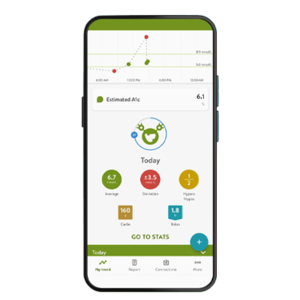Blood pressure and diabetes
You’ve probably had your blood pressure taken at a doctor’s visit, but you might not know what is actually being measured. Your blood pressure numbers represent the force at which blood is pumping through your arteries when your heart beats, in the following format:
- The top number shows systolic pressure (when your heart beats)
- The bottom number shows diastolic pressure (when the heart is resting)
Diabetes and high blood pressure
Diabetes is a risk factor for high blood pressure4, and left untreated, high blood pressure can increase the risk of heart disease and stroke.
Generally speaking, your target blood pressure range should be 120/80 mmHG or lower5. However, if you are an adult with diabetes, your doctor may recommend that you aim for less than 140/90 mmHG4.
Talk to your healthcare team about your personalised blood pressure goals.



